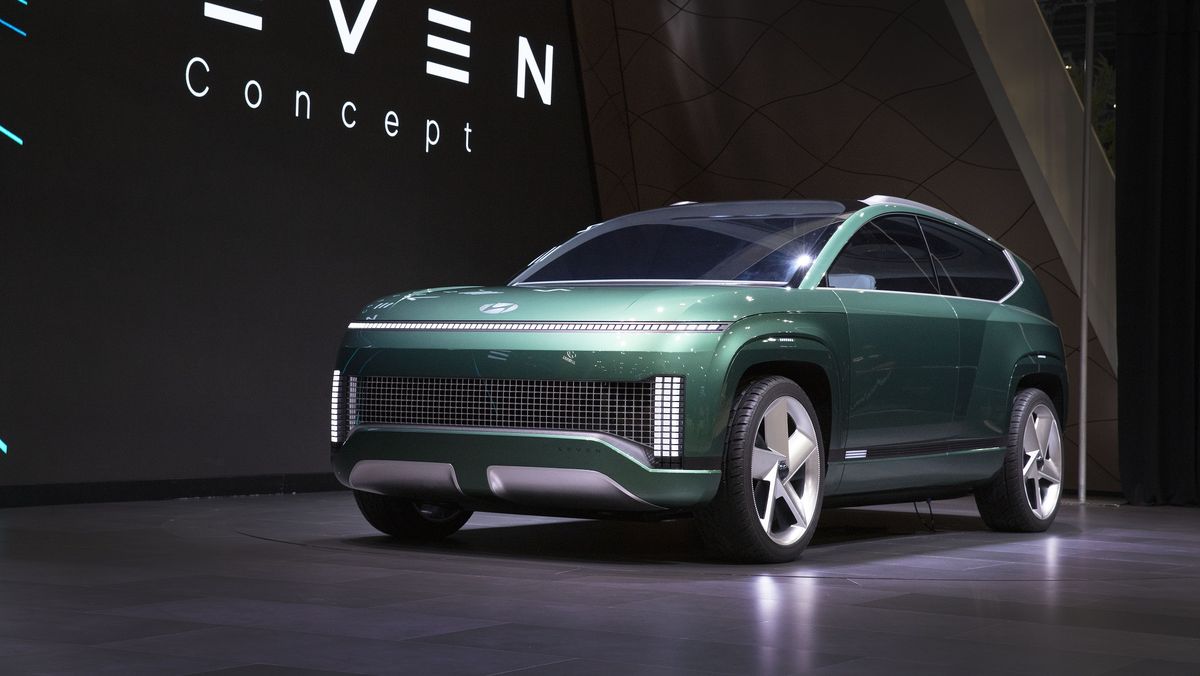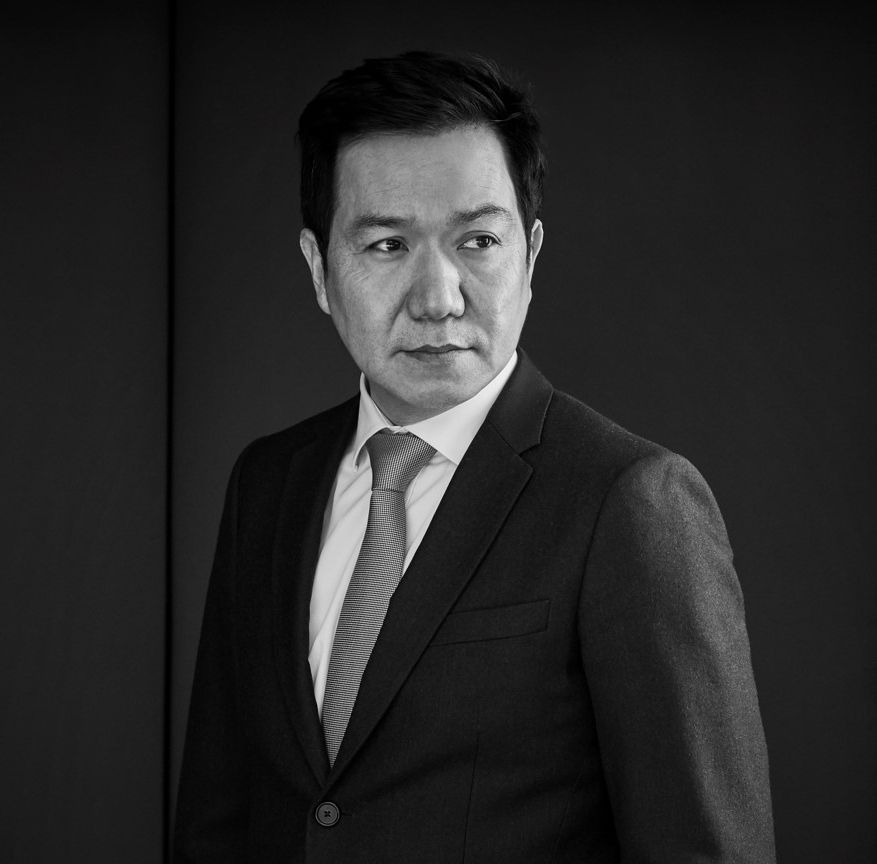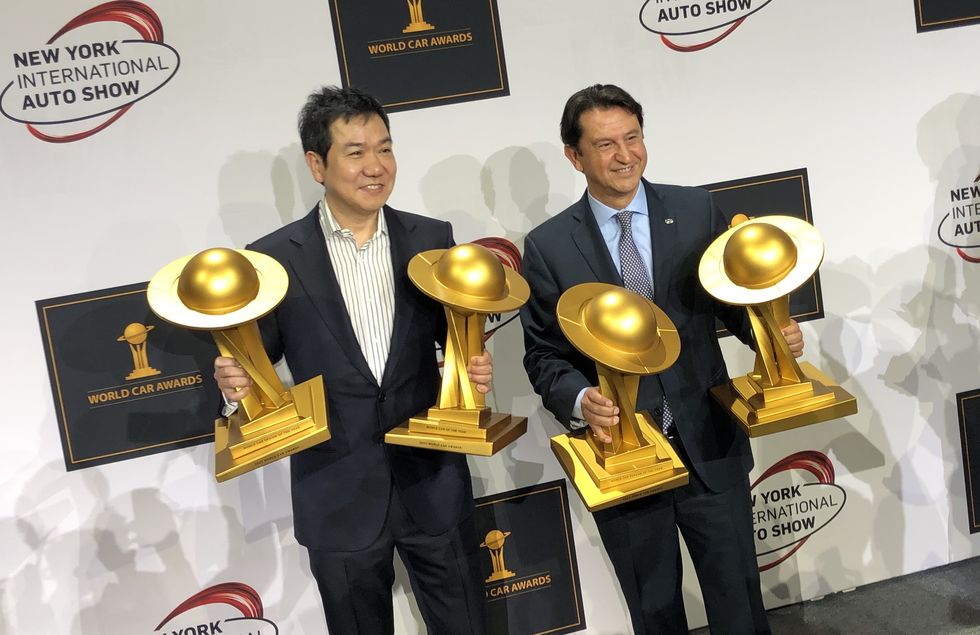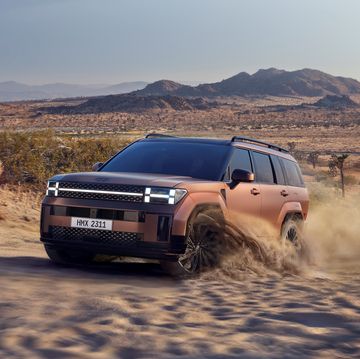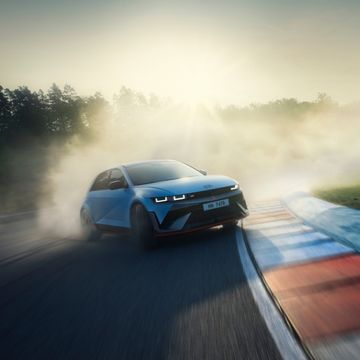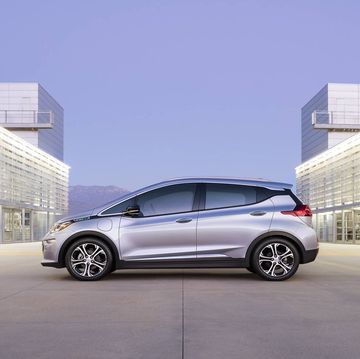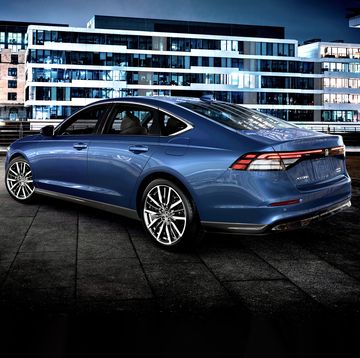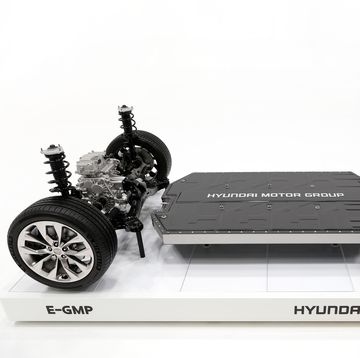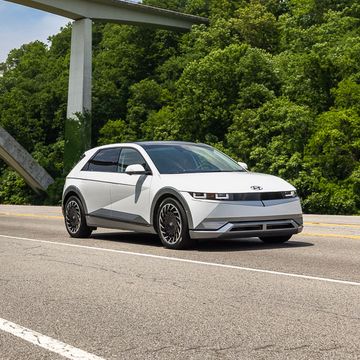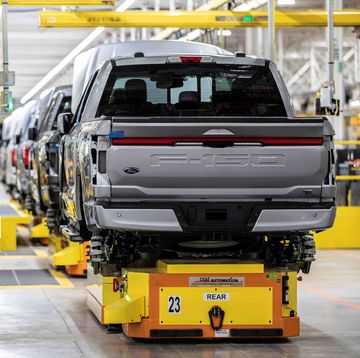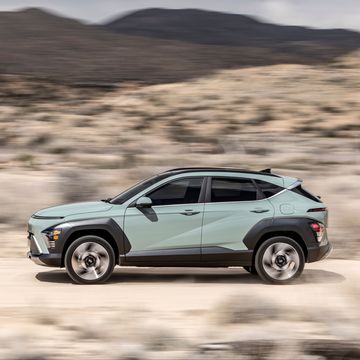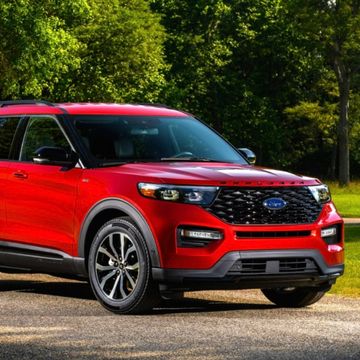- “EVs have given us a lot of opportunity to design. It’s a great chance for us to be pushing the envelope,” SangYup Lee tells Autoweek.
- Even as vehicles add semi-autonomous capability, he says it’s still hard to envision when cars could be truly autonomous, in all situations.
- SangYup Lee and Hyundai scooped up several World Car of the Year awards this week at the New York International Auto Show.
SangYup Lee, the award-winning head designer for Hyundai and Genesis, says purpose-built electric vehicles give designers a lot of freedom—notably, a flat floor and less intrusion from the powertrain provide more interior space to work with—but he says EVs also complicate things for designers.
“EVs have given us a lot of opportunity to design. It’s a great chance for us to be pushing the envelope,” Lee tells Autoweek in an interview at the New York International Auto Show.
Lee notes that EVs are leading the way, as advanced driver-assistance systems take over more of the driving, on the way to vehicles that are nearly fully autonomous. However, he says it’s still hard to envision when cars could be truly autonomous, in all situations.
Until that future day, drivers need to stay ready to take over. So for now, Lee says that’s a big reason Hyundai isn’t switching to all-touchscreen controls, because unfamiliar controls and multiple menus could force drivers to take their eyes off the road.
“The most important thing is, ‘eyes on the road, hands on the wheel.’ For this reason, we don’t delete the hard keys, the hard controls. That’s so important when you drive—you don’t want to be distracted,” Lee says. “The most important aspect of the car is safety,” he says. “First comes safety, then performance, and then content.”
To lessen range anxiety, EVs also heighten the importance of light-weighting and aerodynamics, Lee says.
The 2023 Hyundai Ioniq 6 is streamlined, “like in the 1930s, when aero engineers first started designing cars, with very low drag. It takes more time to design in the studio, but it achieves this amazing range,” he says. “But the interior space can be somewhat compromised by the ‘teardrop’ shape.”
With standard-range trim and equipment, the 2023 Hyundai Ioniq 6 gets an estimated range of 240 miles. Range is up to an estimated 361 miles, with upgraded trim and equipment.
Lee is head of the Hyundai and Genesis Global Design Center and an executive vice president at Seoul-based Hyundai Motor Co.
Also at the New York show, a jury of 100 automotive journalists from 32 countries named the 2023 Hyundai Ionic 6 as World Car of the Year, World Electric Vehicle, and World Car Design of the Year. In addition, Lee was honored as 2023 World Car Person of the Year. The Hyundai Ioniq 5 won the same World Car awards a year ago.
The Hyundai Ioniq 5, Ioniq 6, and a new, three-row, battery-electric model to be based on the Hyundai Seven Concept unveiled at the 2021 Los Angeles Auto Show, are all based on the Hyundai Motor Group’s Electric-Global Modular Platform, abbreviated E-GMP. The Seven Concept-based model (pictured above) is expected to go into production “sometime next year,” Lee says.
Also based on the E-GMP “skateboard” is the three-row, 2024 Kia EV9, which was unveiled at the New York show. US sales are expected to begin at the tail end of 2023, the company said.
José Muñoz, president and CEO of Hyundai Motor Co., joked at the World Car ceremony and again later at the Hyundai auto show press conference, that Lee deserves an award, “for developing ‘autonomous’ cars, because these cars sell themselves, autonomously.”
Muñoz is also president and CEO of Hyundai Motor North America, based in Fountain Valley, California.
